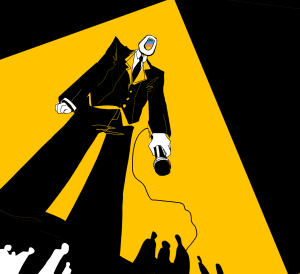President of Hungary resigns
Pal Schmitt, president of Hungary, resigned on Monday, April 2. The resignation appeared to come on the tail end of allegations that Schmitt had plagiarized in his doctoral thesis in 1992. Semmelweis University, located in Budapest, stripped Schmitt’s doctoral degree last week.
According to The New York Times, in a plenary session of Budapest’s Parliament, Schmitt said, “Based on Hungary’s constitution, which I have signed, the president expresses national unity. In this situation when my personal issue divides my beloved nation rather than unites it, I feel it is my duty to end my service and resign my mandate as president.”
The thesis in question contained 16 pages of identical translation from the 1991 work of Klaus Heinemann, a German author. Additionally, 160 pages were found to contain portions of text, charts, and graphs that were identical to the 1987 work of Nikolay Gueorguiev, a Bulgarian author.
Schmitt, now age 69, continues to deny any plagiarism. He claimed that members of Parliament had already decided he was guilty before any investigation took place. Those same members supposedly “morally undermined” his work as a member of the International Olympic Committee.
The possible plagiarism was brought into light by HVG, a business weekly, which noted that some portions of Schmitt’s thesis were identical to Gueorguiev’s work. Tivadar Tulassay, the rector of Semmelweis University, also resigned.
Supreme Court votes in favor of strip searches
On Monday, April 2, the Supreme Court announced that, by a five-to-four vote, officials are now allowed to strip-search people who are arrested for any offense. Strip searches are allowed for every level of offense, even with no reason to suspect contraband.
According to The New York Times, Justice Anthony M. Kennedy said the Supreme Court has no right to “second-guess the judgments of correctional officials who must consider not only the possibility of smuggled weapons and drugs, but also public health and information about gang affiliations.” Arrested individuals may also be required to undergo a strip search upon entering a prison’s general population.
The Supreme Court’s ruling is forbidden in 10 states by statute, and is against the policies of federal authorities. International human rights treaties also prohibit strip searches. It is important to point out that the strip searches are not required, but are allowed in any situation.
Justice Stephen G. Breyer had a different opinion, and wrote that the strip searches were “a serious affront to human dignity and to individual privacy,” and that they should only be used with good reason. Kennedy pointed out that some people who are arrested for minor offenses can be extremely dangerous criminals.
Bin Laden’s wives deported
Three wives and two adult daughters of Osama bin Laden were ordered to complete six weeks in prison for illegally entering the country on Monday, April 2. The Pakistani court that issued the order also said the women were to be deported after their time in prison was complete. The five women were in violation of Pakistani immigration laws and were each fined $110. The daughters and two of the wives, Kharia Hussain Sabir and Siham Sharif, are originally from Saudi Arabia. The youngest wife, Amal Ahmad Abdul Fateh, is originally from Yemen.
The women have been in custody of Pakistani authorities since last May when Bin Laden was killed by American Navy SEAL commandos in his hiding place in Abbottabad. The wives and daughters were arrested on March 3; they have two more weeks to serve and are expected to be deported by April 15. Bin Laden’s three wives are currently under house arrest in Islamabad. The hearing on Monday took place in their home.
Shooting at California school proves deadly
On Monday, April 2, a gunman opened fire at Oikos University, a Christian college in East Oakland, Cali. The gunfire killed at least seven people and injured at least three.
The suspect, thought by the Oakland police to be a man in his 40s, was taken into custody after being caught in a shopping mall parking lot in Alameda, California. According to USA Today, the suspect walked into a Safeway grocery store and told shoppers that he had just shot several people.
The shooting took place in a classroom, beginning around 10:30 a.m. The area around the college was locked down, and staff and students were kept inside until later Monday afternoon.
Pastor Jong Kim, the university’s founder, said the suspect taken into custody used to be a nursing student, but was no longer enrolled at the university. Kim recalled hearing about 30 gunshots.















